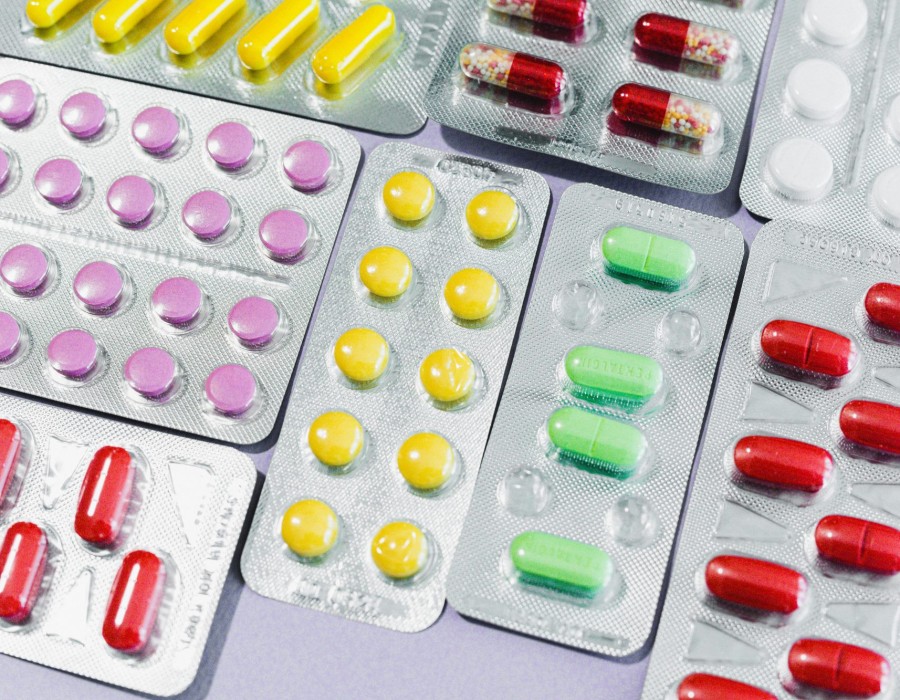Hormone Replacement Therapy (HRT) is widely celebrated for its potential to alleviate symptoms of menopause, such as hot flashes, mood swings, and sleep disturbances. However, a growing number of individuals undergoing HRT have raised concerns about its potential side effects, including depression. While HRT offers numerous benefits, understanding its risks, particularly the question, can HRT cause depression?, is essential.
In this article, we’ll delve into the relationship between HRT and depression, exploring the science behind it, personal experiences, and expert insights. By the end, you'll have a clearer picture of what to expect and how to make informed decisions about your health.
What Is Hormone Replacement Therapy (HRT)?
HRT involves supplementing the body with hormones like estrogen and progesterone to counteract the effects of reduced hormone production during menopause. There are different types of HRT, including:
- Estrogen-only therapy
- Combined therapy (estrogen and progesterone)
- Local hormone treatments (e.g., vaginal creams)
While HRT can significantly improve quality of life, it’s not a one-size-fits-all solution. Individual responses vary, and some may experience side effects, including potential mood changes.
The Science Behind HRT and Mood Changes
The link between HRT and depression is complex. Hormones influence brain chemistry, particularly neurotransmitters like serotonin, which play a critical role in mood regulation. Here's what we know:
- Estrogen’s Role in Mood Regulation
- Estrogen is believed to have a protective effect on the brain, enhancing serotonin levels. However, abrupt changes in hormone levels can disrupt this balance, potentially leading to depressive symptoms.
- Progesterone’s Dual Impact
- While some forms of progesterone can have a calming effect, others, like synthetic progestins, are associated with mood disturbances, including depression.
- Individual Sensitivities
- Genetic and environmental factors can influence how an individual responds to HRT. For some, the introduction of external hormones may exacerbate pre-existing mood disorders.
Can HRT Cause Depression?
The question, can HRT cause depression?, is not straightforward. While some studies suggest that HRT may alleviate depressive symptoms, others report that certain formulations or dosages can trigger or worsen depression.
Factors Influencing HRT and Depression:
- Type of Hormones Used
- Bioidentical hormones are often preferred for their compatibility with the body, potentially reducing side effects.
- Dosage and Administration
- Incorrect dosages or abrupt changes in therapy can lead to mood instability.
- Pre-existing Mental Health Conditions
- Women with a history of depression or anxiety may be more susceptible to mood changes during HRT.
Managing Risks and Maximizing Benefits
If you’re considering HRT, here are some steps to ensure you minimize risks:
- Consult an Expert
- Work closely with a healthcare provider who specializes in menopause and HRT. Discuss your medical history and any pre-existing conditions.
- Monitor Your Mood
- Keep a journal to track mood changes after starting HRT. This can help you and your doctor identify patterns and adjust treatments accordingly.
- Explore Alternative Therapies
- For those concerned about depression, non-hormonal treatments such as cognitive behavioral therapy (CBT), antidepressants, or lifestyle changes might be effective.
- Prioritize Self-Care
- Regular exercise, a balanced diet, and stress management techniques can support overall mental health during HRT.
Personal Experiences: Real Stories of HRT and Mood Changes
Many individuals have shared their experiences with HRT and its impact on their mood. While some report feeling more balanced and energetic, others have noted increased feelings of sadness or irritability.
FAQs About HRT and Depression
1. Can HRT cause depression in everyone?
No. While some individuals may experience depressive symptoms, others report improved mood stability. Responses to HRT are highly individual.
2. How can I tell if HRT is affecting my mood?
Look for changes in energy levels, sleep patterns, and emotional well-being. If you notice significant mood swings, consult your doctor immediately.
3. Are there alternatives to HRT if I’m prone to depression?
Yes. Non-hormonal treatments like selective serotonin reuptake inhibitors (SSRIs), herbal supplements, or lifestyle changes can help manage menopausal symptoms.
Conclusion
Hormone Replacement Therapy can be a lifeline for many navigating the challenges of menopause, but it's not without its complexities. By addressing the question, can HRT cause depression?, we uncover the importance of personalized care and ongoing communication with healthcare providers.
While HRT offers significant benefits, staying informed and vigilant about potential side effects ensures you can navigate your menopausal journey with confidence and peace of mind.





Comments